Standards
What is a standard?
A standard is a reference, a recommendation, adopted by a community. It comes close to the notion of a standard, without being totally mandatory. The GALIA standards (and by extension Odette) are used among players in the automotive industry (Manufacturers, equipment suppliers, suppliers, service providers and solution providers, etc.).
Depending on the subject or process involved, the standard takes several forms. It can represent an operating mode (organization of exchanges between customer and supplier, etc.), a procedure (management of forecasts, etc.), technical specifications (characteristics of packaging, etc.) or functional (label data, etc.), a model of data to be exchanged (structure of EDI messages, etc.), a tool to help build a process (management of long-term archiving, etc.), specifications for the development of IT solutions (criteria for analyzing the quality of a CAD model…) or a shared and auditable repository (Global MMOG / LE, functions present in an ERP…).
What is the use of a standard?
The standard contributes to efficiency and performance. It offers a benchmark of proven best practices, validated by experts. It guarantees interoperability between different partners. It avoids studying and asking questions. It acts as a specification when purchasing products or services or when developing IT solutions. Taken into account by consulting firms, implemented by solution editors, it speeds up deployments. It facilitates the development of commercial activities with new partners. So it saves time for those who implement it and those who use it.
What is the use of a standard?
GALIA brings together companies from the automotive industry on issues relating to the exchange of goods and information. For more than 30 years, industrial experts have been meeting to identify good business practices. Lot of work is carried out jointly with our global partners.
To maintain this intellectual capital, GALIA continues to call on its members to adapt the standards to the changing needs of the supply chain or engineering. GALIA approaches other sectors whenever automotive processes require it.
The resources pooling within GALIA (Collaborative working groups, detachment of experts, appropriation of external work, etc.) results in a “leverage effect” beneficial to each company, which optimizes its investment in days / hours and the cost of solutions …
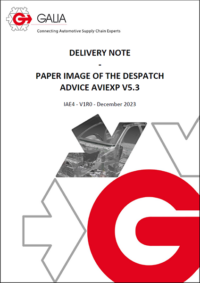
Delivery note – Paper Image of the Despatch Advice AVIEXP V5.3
This standard describes in detail the delivery note (BL) of the AVIEXP V5.3 Dispatch Notice message.


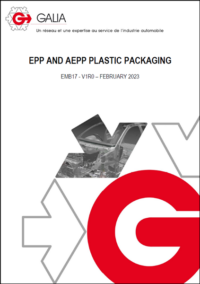
EPP and AEPP Packaging
This document lists the specifications for EPP or AEPP packaging used in the automotive industry.


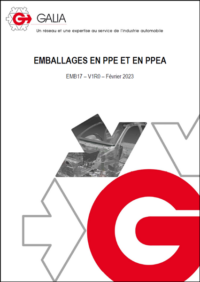
EPP and AEPP Packaging (French version)
This document lists the specifications for EPP or AEPP packaging used in the automotive industry.


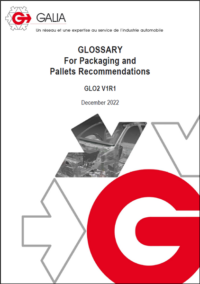
Glossary for Packaging and Pallets Recommendations
This document lists the technical terms used in the GALIA recommendations related to packaging and pallets.


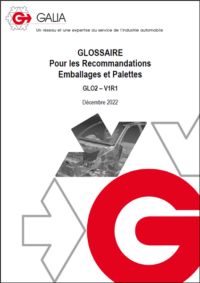
Glossary for Packaging and Pallets Recommendations (French version)
This document lists the technical terms used in the GALIA recommendations related to packaging and pallets.


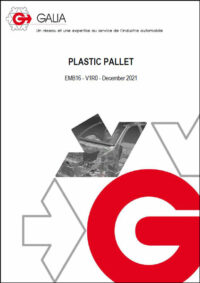
Plastic Pallet
This document describes specifications for plastic pallets used by the automotive industry.


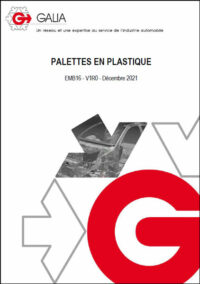
Plastic Pallet (French version)
This document describes specifications for plastic pallets used by the automotive industry.


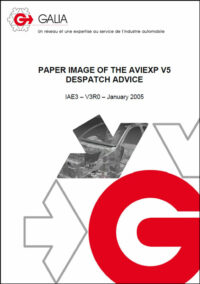
Paper Image of the AVIEXP V5 Despatch Advice
This standard describes in detail the “Bordereau de Livraison” (BL) of the AVIEXP V5.2 Despatch Advice message.


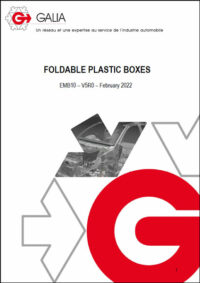
Foldable plastic boxes
This recommendation defines manufacturing specifications and testing procedure for the range of foldable plastic boxes with 3 modular boxes: 4325, 6423 et 6433.

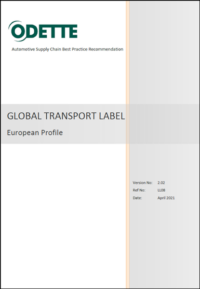
Global Transport Label – European Profile
This standard describes the specifications of the Global Transport Label (GTL) models that were developed between Odette, AIAG and JAMA-JAPIA, with the participation of GALIA.

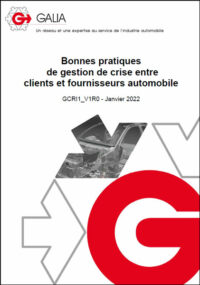
Best practices for crisis management between automotive customers and suppliers (French version)
This best practices guideline was drawn up by GALIA members, in the context of the COVID-19 crisis, following feedback from companies on crisis management, particularly in terms of customer-supplier communication and updating of information systems and EDI.

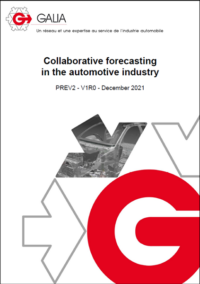
Collaborative forecasting in the automotive industry
This recommendation provides a detailed description of the various processes used in the field of forecasting/programming for automotive manufacturers and suppliers.

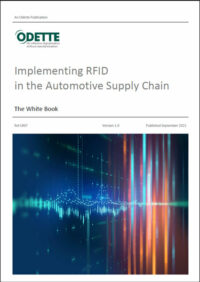
Implementing RFID in the Automotive Supply Chain – White Book
Odette and the national associations (GALIA, VDA, Odette Sweden, SMMT) brought together a working group of RFID experts to share best practices and go further in defining process and technical standards to be implemented in automotive logistics flows.

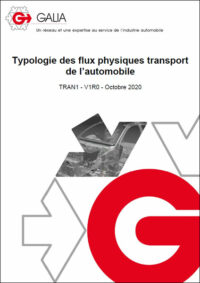
Typology of transport physical flows of the Automotive industry (French version)
This document presents an inventory of types of transport scheme implemented in the automotive industry. This is a review of the different physical flows by describing their main characteristics, flow breaks (stages) and the sharing of responsibilities between supplier and customer.

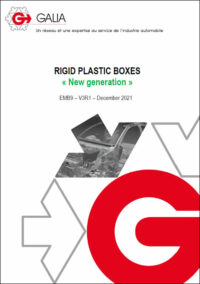
Rigid plastic boxes “New generation”
This recommendation defines manufacturing characteristics and testing procedure for the Range 1.1 of rigid plastic boxes composed of 5 modular boxes and one length box.


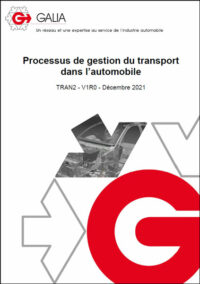
Transport Management Process in the Automotive industry (French version)
This document describes the transport management process in the context of the automotive industry. It describes the main functions involved, the exchanges between these different functions, the information systems used and the role of the actors involved.

